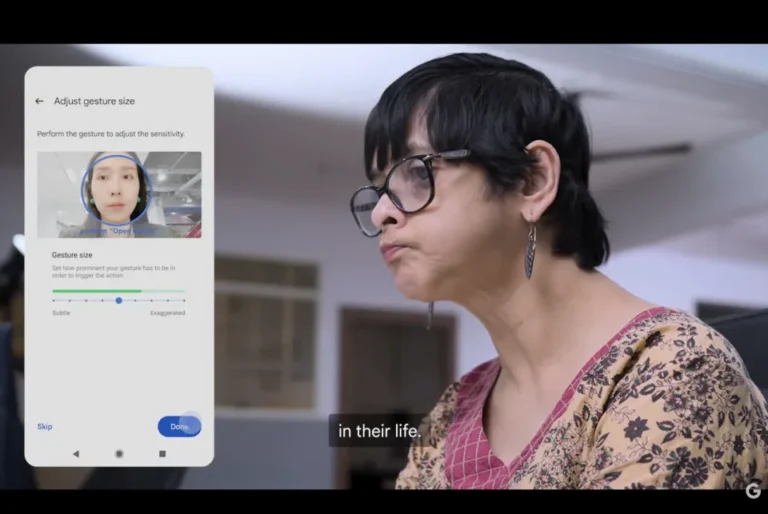There may be more accessible Android apps as a result of Project Gameface.
The business presented Project Gameface, a hands-free gaming “mouse” that enables users to control a computer’s cursor using motions of their head and facial gestures, during the Google I/O developer conference that took place the previous year. According to an announcement made by Google this year, the company has open-sourced further code for Project Gameface. This will enable developers to create Android applications that are capable of utilizing the technology.
The program makes use of the front-facing camera of the mobile device in order to monitor facial expressions and head motions. This information may then be utilized to control a virtual cursor. On an Android phone, for example, a user may grin to “select” items onscreen, or they could raise their left eyebrow to return to the home screen. Both of these actions are possible. In addition, users have the ability to establish thresholds or gesture sizes for each emotion, which allows them to manage the degree to which their expressions draw attention to themselves in order to initiate a certain mouse action.
In collaboration with gaming streamer Lance Carr, who suffers from muscular dystrophy, which causes his muscles to become weaker, the business developed Project Gameface. Before his home and his pricey equipment were destroyed by fire, Carr used a head-tracking mouse to play video games. Although the initial iteration of Project Gameface was primarily geared toward gaming and made use of a webcam to identify facial expressions, Google was aware from the beginning that it could be utilized for a wide variety of other purposes as well.
As part of the debut of the tool for Android, Google collaborated with an organization in India known as Incluzza, which provides assistance to individuals who have disabilities. Because of the cooperation, the organization was able to gain an understanding of how Project Gameface may assist individuals with disabilities in advancing their education, improving their ability to communicate with friends and family, and locating employment opportunities online. On GitHub, Google has made the open source code for the project available to developers, and the company is expecting that additional developers would choose to “leverage it to build new experiences.”

